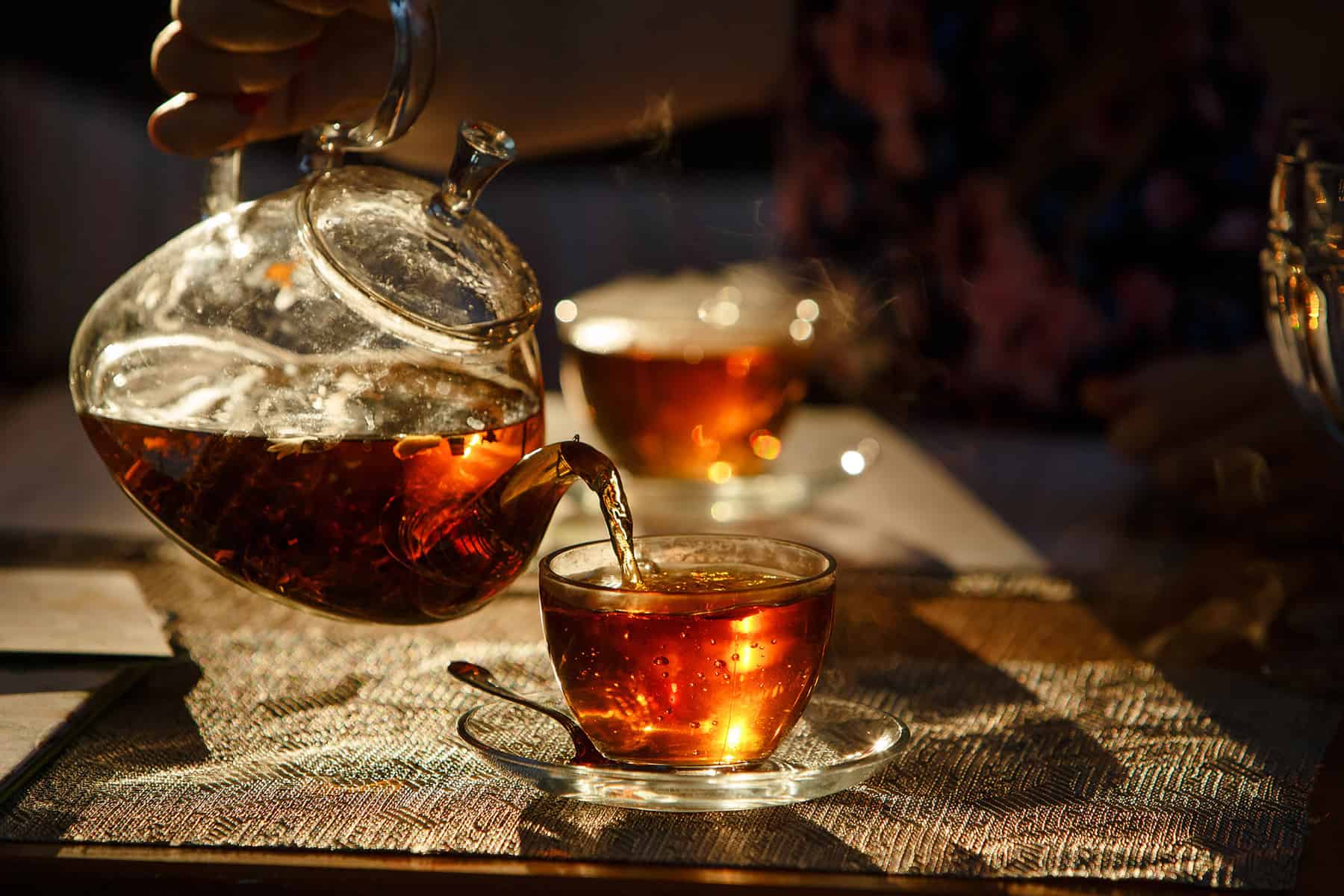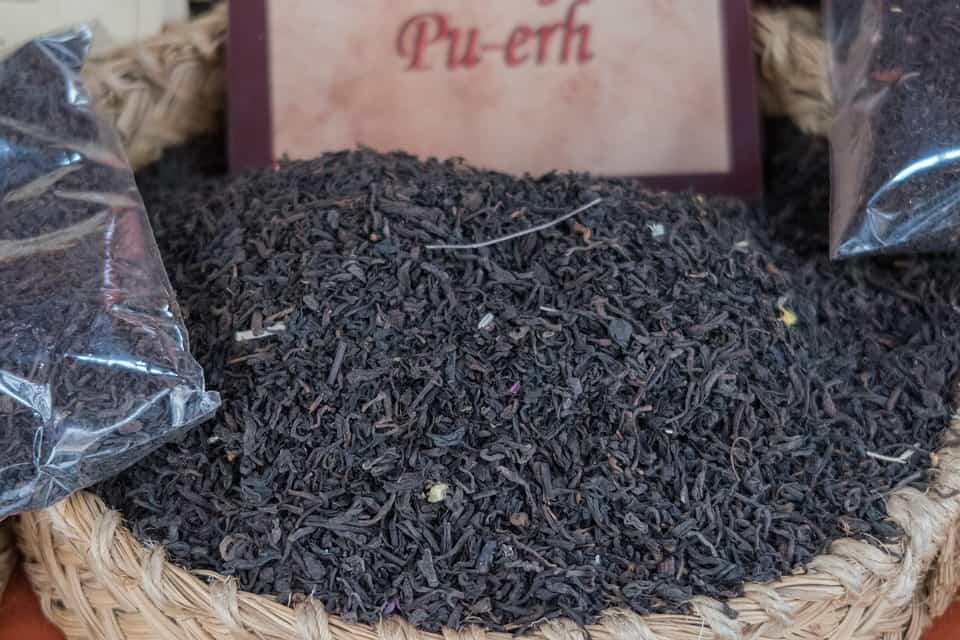You have probably enjoyed matcha in your bubble, tea, ice cream, latte, and many Instagram-friendly snacks.
How much do you understand about matcha tea benefits and cultural significance? This powdery green tea has a unique flavor profile and amazing benefits in one cup.
Here is everything you need to know about matcha (and why you should drink the original tea!).
1. What is Matcha Tea?
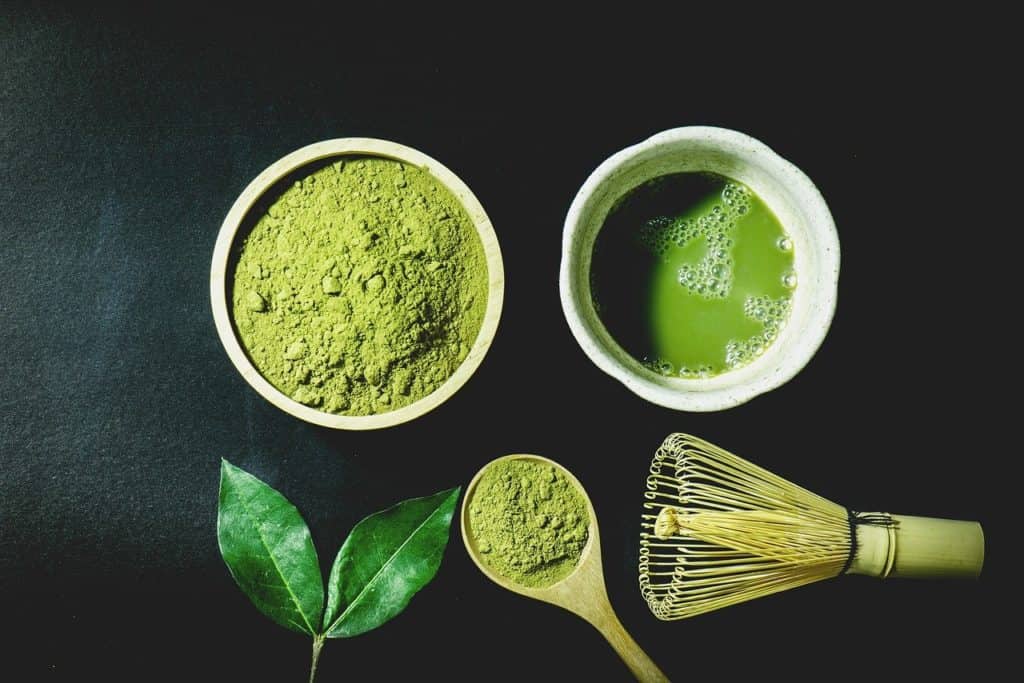
Matcha tea comes from the same plants with green or black tea. It gets its green, powdery look from grinding and covering methods; the latter increases the chlorophyll level in the tea.
The result is fine powdered tea with a bright green color. Unlike green tea, matcha tea has a dark green color even in a brewed form. It is because you drink the entire leaves, not just the extract,
Despite being popular in Japan, matcha had appeared in China during the Tang Dynasty.
However, matcha is now identical to the Japanese tea ceremony. The tea ceremony involves mindfulness, respect, and elegant choreography in its practice.
The host whisks the matcha powder with a special brush, creating a thick, foamy beverage.
Does matcha have caffeine? Yes. Because matcha makes you consume the whole leaves, you get higher caffeine intake than regular bagged tea. A cup of matcha contains half of the caffeine from a cup of black coffee.
2. Health Benefits of Matcha Tea
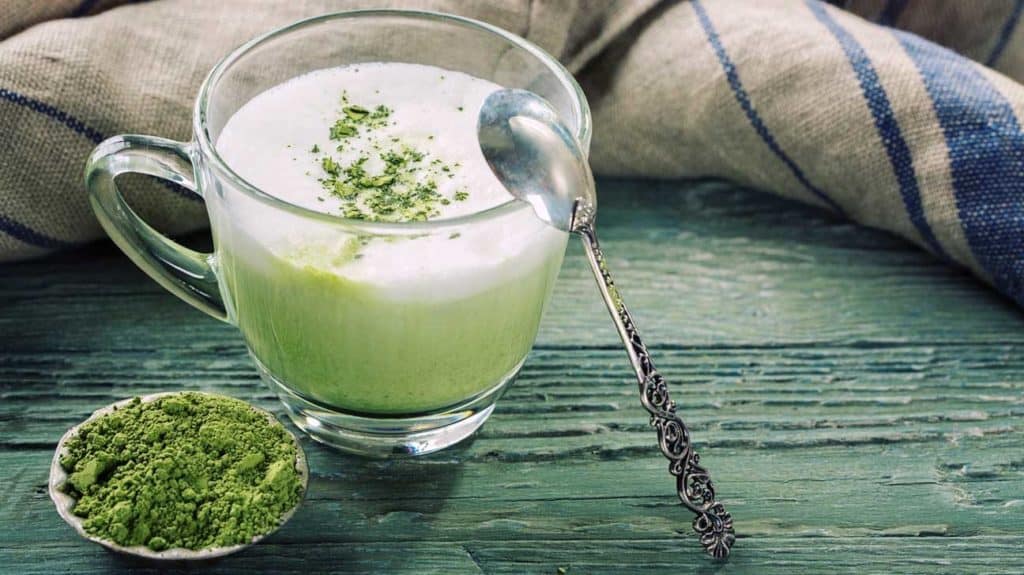
Crushing the entire leaves give high matcha levels of antioxidants. A cup of matcha has 10 times more antioxidants than a cup of green tea. You can get various health benefits from consuming matcha, such as:
a. Reducing the Risks of Cardiovascular Diseases
The antioxidants in matcha can lower the LDL cholesterol level and relax the blood vessels. The result is a healthier circulation system, which reduces the risks of coronary heart disease and stroke.
b. Helping with Weight Loss
Matcha’s caffeine level may help in healthy weight loss. The caffeine boosts your metabolism and increases the speed of fat burning.
However, drinking matcha tea for weight loss alone is not enough. You must incorporate healthy eating and exercise.
c. Improving the Brain Performance
The antioxidants in matcha tea help improving your focus and concentration. Regular consumption may also reduce the risks of degenerative diseases, like Parkinson’s and Alzheimer’s.
d. Protecting the Liver
Matcha may help to keep your liver healthy by reducing its damages. Several studies on people with fatty liver disease (nonalcoholic) showed how matcha consumption reduces the signs of liver damage.
However, researchers are still studying the effects to find a better conclusion.
You can get all these benefits from regular consumption. Because of the caffeine level, you should limit the matcha to one or two cups per day.
3. Side Effects of Matcha Tea
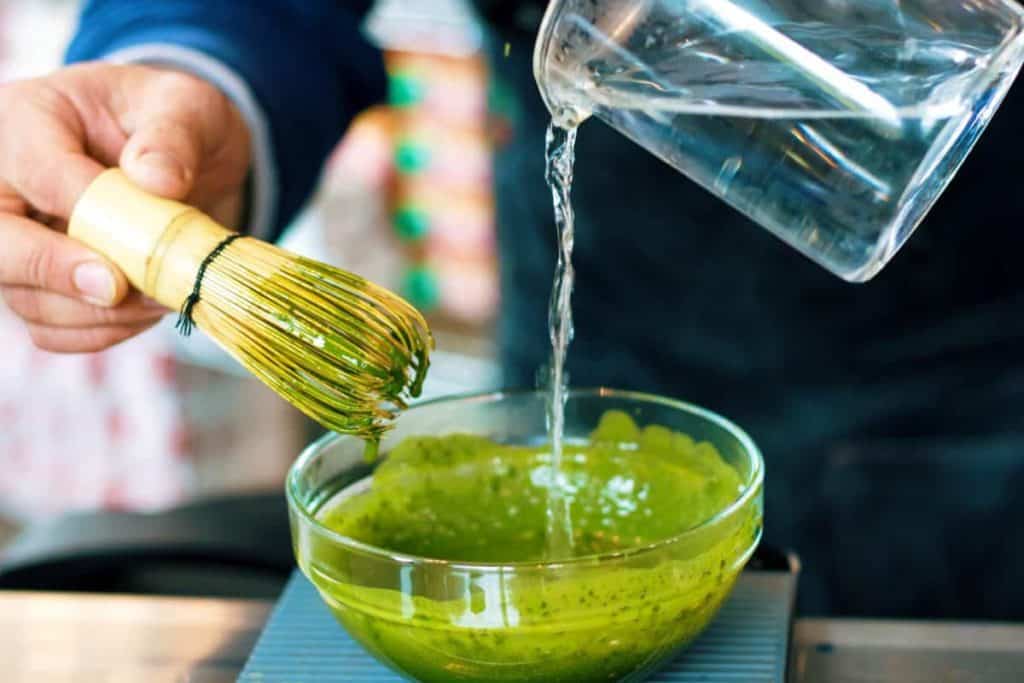
Is matcha good for you? Generally, yes, but there are some concerns from consuming matcha, especially in excess amount. The possible side effects include:
a. Caffeine Exposure Effects
The high caffeine level in matcha can cause insomnia, heart palpitation, headache, and heartburn. It can also trigger the symptoms of anxiety.
b. Digestive Tract Problems
Some people may develop digestive tract problems after consuming matcha. The symptoms include diarrhea, constipation, and gas.
c. Lead Exposure
There are concerns about the amount of lead, fluoride, and even pesticide. These dangerous compounds may enter your body through the crushed tea leaves.
To prevent these problems, you should drink matcha in a moderate amount. You must also skip it if you are pregnant, breastfeeding, taking medications, or having surgery.
Buy organic products to prevent dangerous chemical exposure.
4. How to Consume Matcha
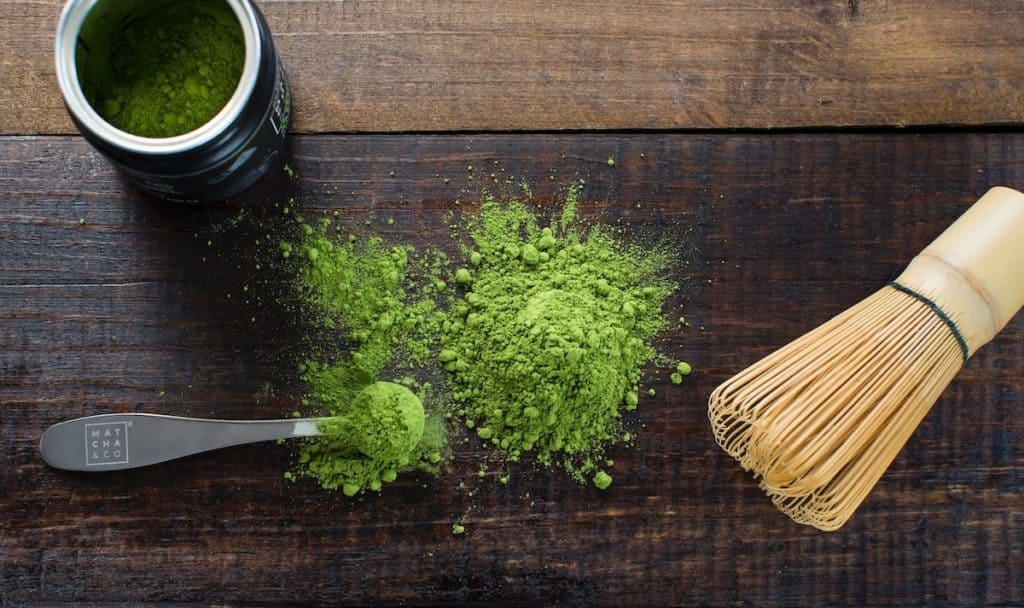
To make matcha, sift two teaspoons of the tea powder into a cup and slowly add hot water (use filtered water with slightly below boiling temperature). Whisk the matcha slowly until the tea is foamy and thick.
The flavor profile is subtle, earthy, and even a little bitter. However, turning matcha into a cold drink can extract its natural sweetness.
You can also experiment with matcha tea recipes, using the concentrated tea flavor to create delicious treats.
Some recipe examples are:
a. Simple Matcha Yogurt Blend
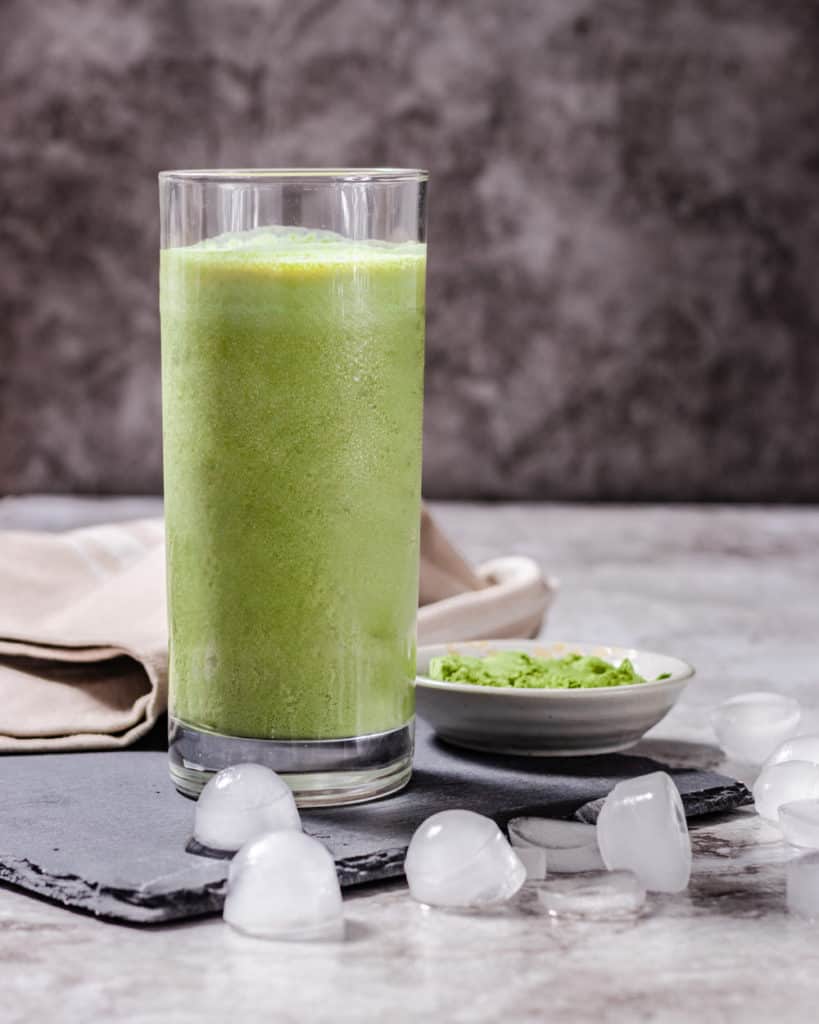
Blend a cup of yogurt with two teaspoons of matcha, ice cubes, and honey. Adjust the amount of yogurt and matcha to get the right flavor.
b. Simple Matcha Latte
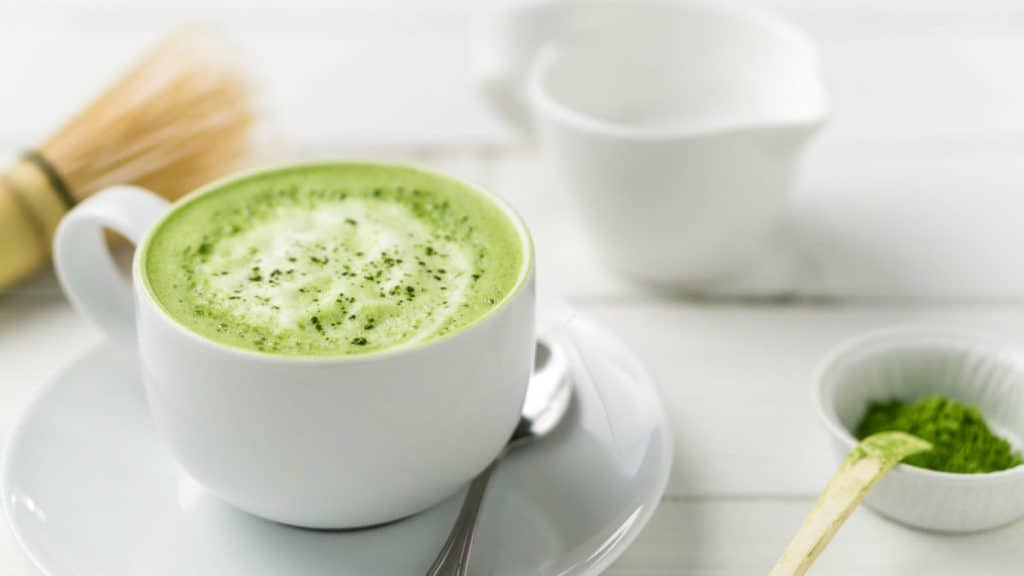
Sift 2 teaspoons of matcha into a cup and add a little hot water. Whisk until it turns into a green paste. Heat almond or skim milk and create foam with a foam-maker tool.
Pour the hot milk into the cup and add the foam on top. Sweeten with honey, agave, or peppermint syrup.
c. Iced Matcha with Lemon
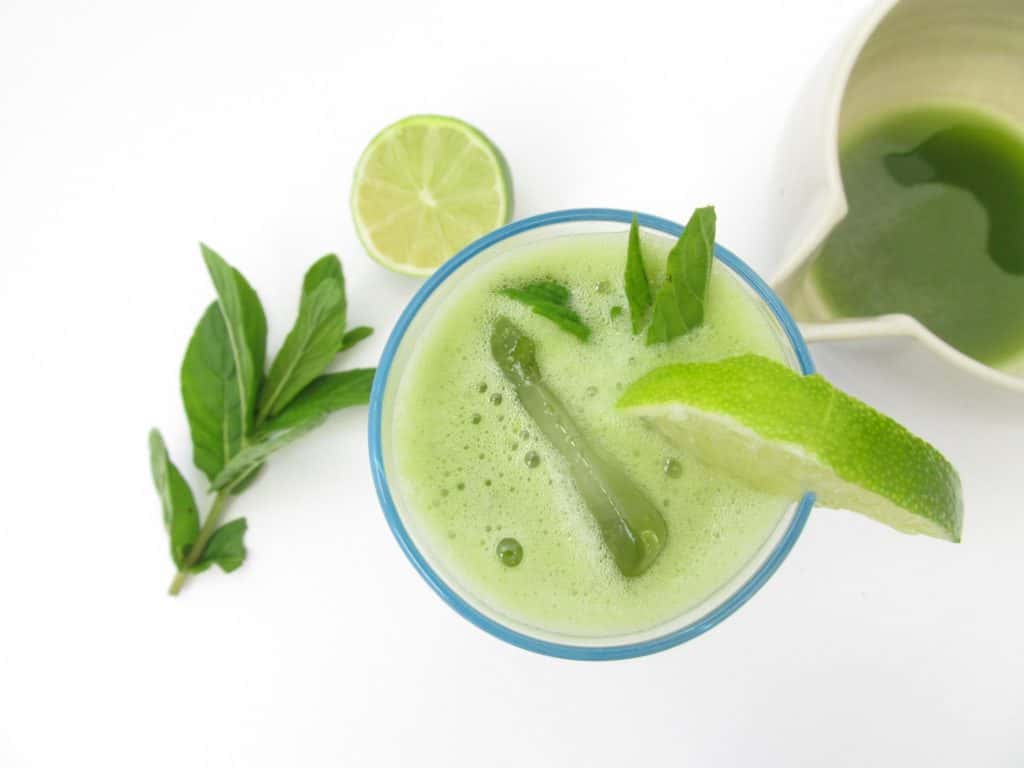
Matcha powder doesn’t “blend” in cold water, so you must use a shaker. Put two teaspoons of matcha, a glass of cold water, and ice cubes into a shaker.
Add freshly squeezed lemon or lime juice and honey. Shake vigorously and enjoy.
5. Best Matcha Tea Brands
Want to buy high-quality matcha power for home using? Here are some of the most recommended brands.
a. Midori Spring Ceremonial Organic Matcha
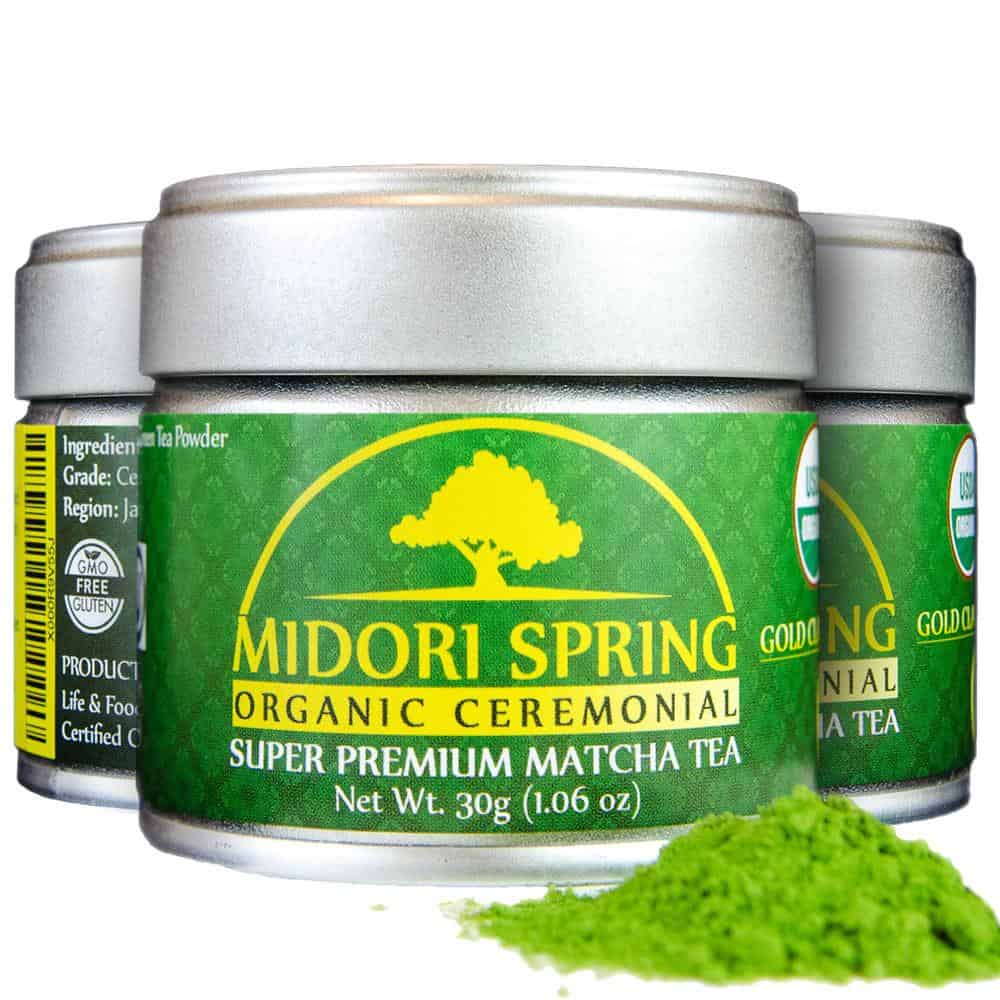
Midori Spring sells the same matcha powder you can find at traditional Japanese tea ceremonies.
The matcha is fragrant, with a subtle flavor. The organic label means you don’t need to worry about dangerous chemical compounds.
b. Encha Pure Organic Matcha
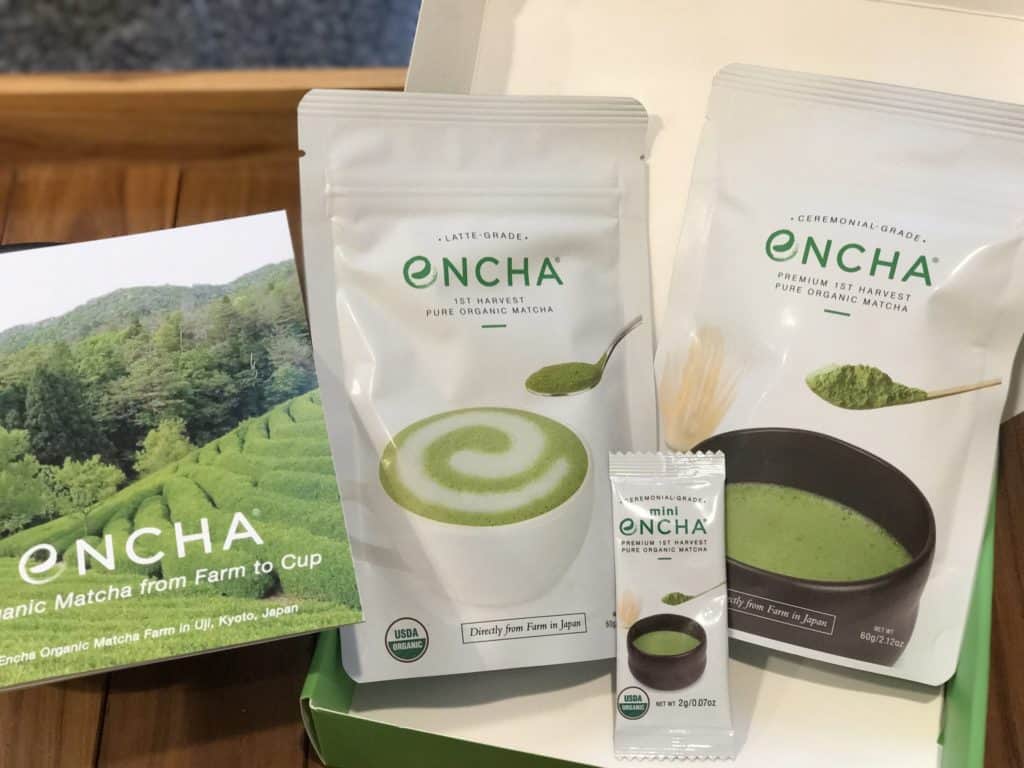
This Tokyo-made matcha tea also has a ceremony-standard grade. The flavor is soft but rich, with a toasty note and fragrant aroma.
c. Kiss Me Organics Matcha
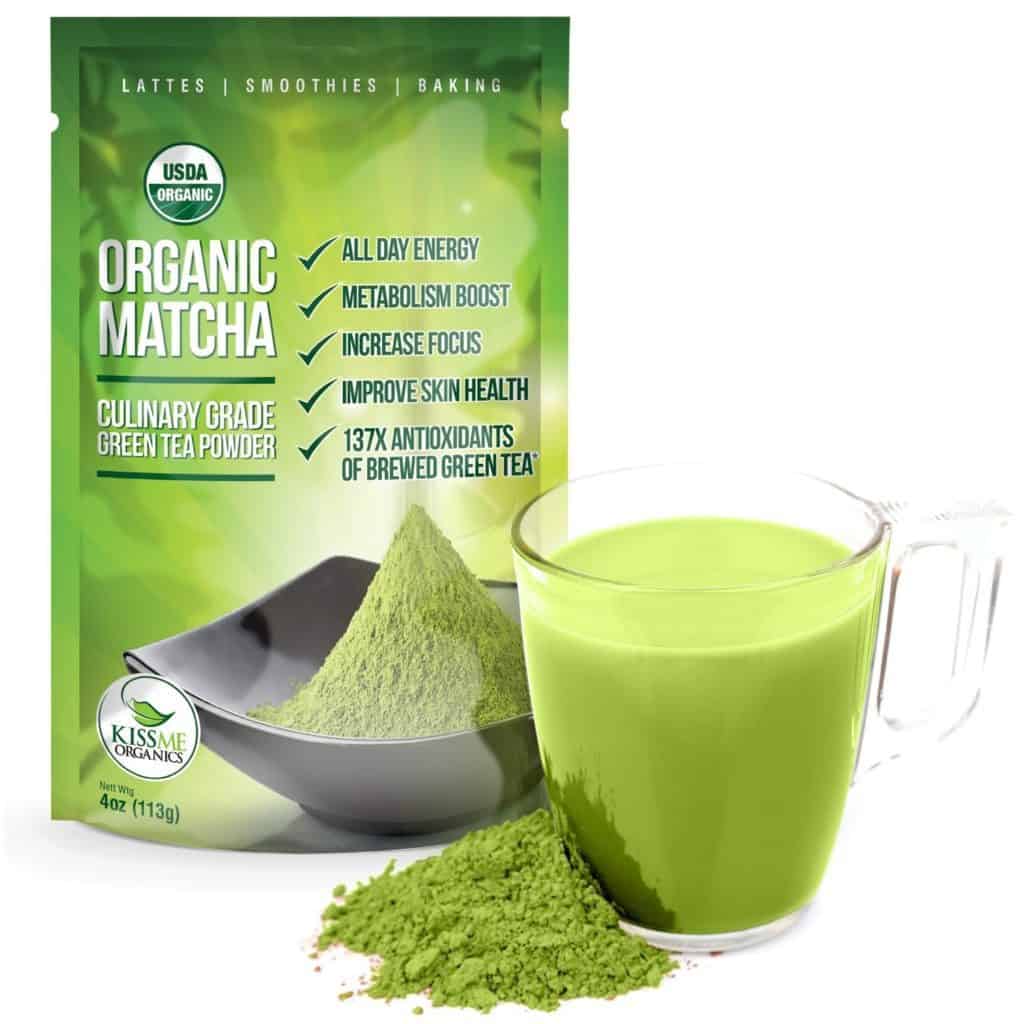
This matcha powder has a “culinary grade” label, which means it is more suitable for cooking and making beverages. You can use it to make a latte, smoothie, ice cream, toast, and cake.
d. Mizuba Tea Company Daily Matcha
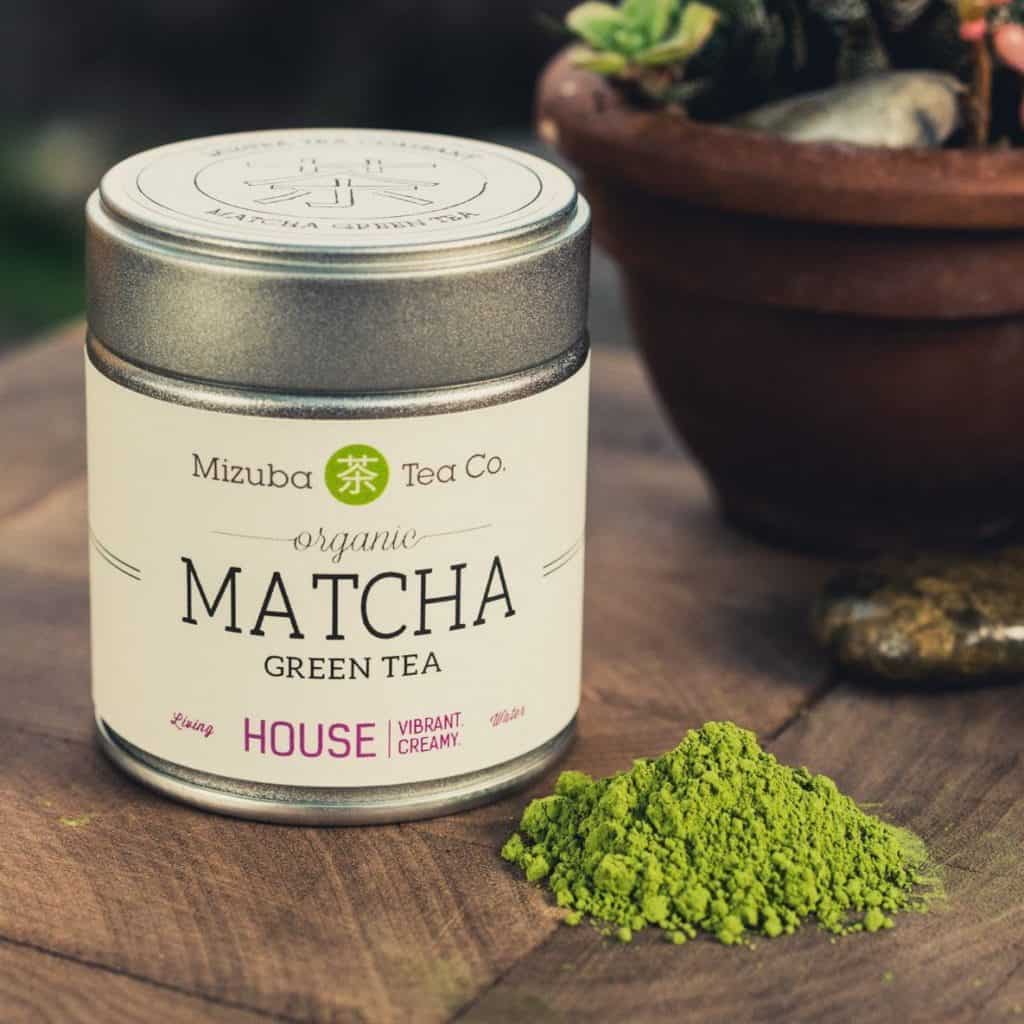
Mizuba Tea Company Daily Matcha originates from an ancient tea farm in Uji, Japan. The flavor is rich with nutty tones. The floral fragrance will make you feel relaxed when enjoying a cup.
e. Kenko Premium Matcha
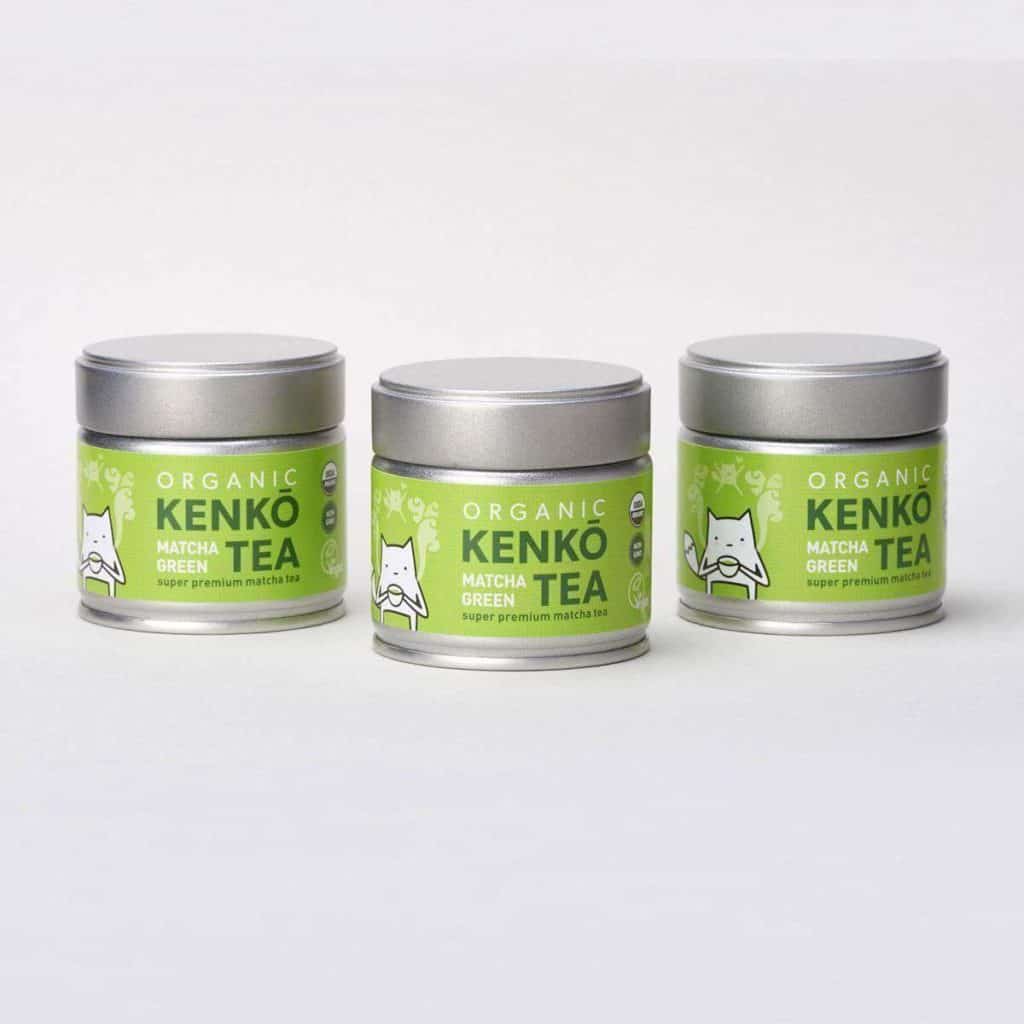
Kenko Premium Matcha has a subtle grassy tone, which feels refreshing even if you enjoy the tea warm.
The powder is placed in a cute tin, which is more environmentally friendly. You can reuse the tin after finishing the tea.
6. Conclusion
Matcha is more than just stylish flavoring for modern desserts. The tea has cultural significance and amazing flavor on its own.
Macha tea benefits come from the tea’s high antioxidant levels. Enjoy matcha tea in its original form to get the full benefits.
Read More :


